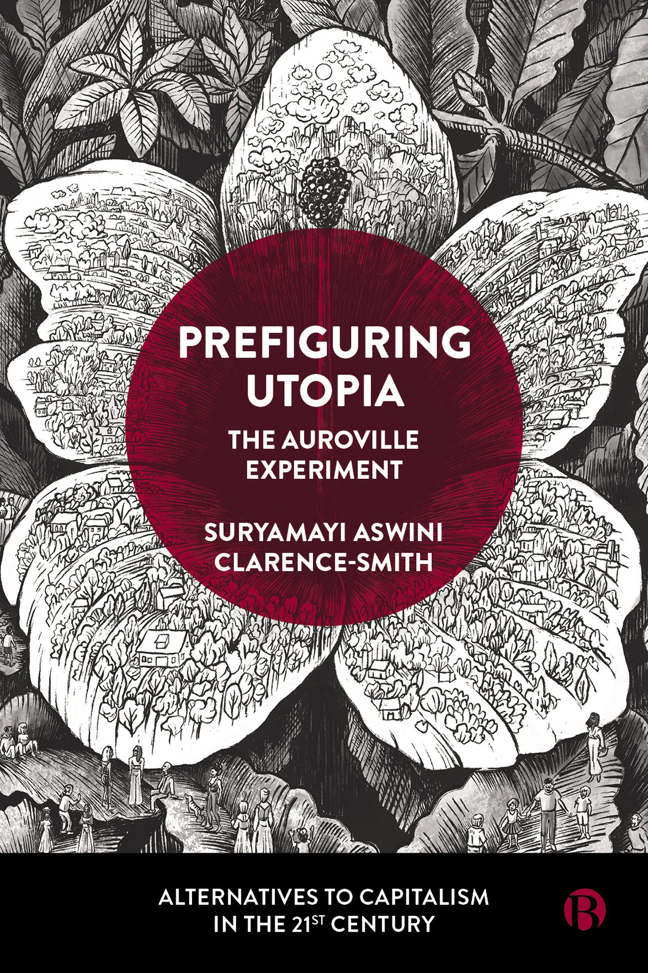Book contents
- Frontmatter
- Dedication
- Contents
- List of Figures and Tables
- Glossary
- About the Author
- Acknowledgements
- Foreword
- 1 All Life is Yoga: An Introduction
- PART I Culture
- PART II Polis
- PART III Economy
- Afterword
- Appendix A A Dream (The Mother, 1954)
- Appendix B The Auroville Charter (The Mother, 1968)
- Appendix C To Be a True Aurovilian (The Mother, 1971)
- Notes
- References
- Index
Foreword
Published online by Cambridge University Press: 24 January 2024
- Frontmatter
- Dedication
- Contents
- List of Figures and Tables
- Glossary
- About the Author
- Acknowledgements
- Foreword
- 1 All Life is Yoga: An Introduction
- PART I Culture
- PART II Polis
- PART III Economy
- Afterword
- Appendix A A Dream (The Mother, 1954)
- Appendix B The Auroville Charter (The Mother, 1968)
- Appendix C To Be a True Aurovilian (The Mother, 1971)
- Notes
- References
- Index
Summary
A society dedicated to a poet, imagined by a mystic and occupied by visionaries is an ideal site for any anthropologist or storyteller. A utopian community exploring the extraordinary possible will undoubtedly also attract revolutionaries and innovators fascinated by Auroville's radical experiment in lived human unity. As an anthropologist, novelist and change maker, Auroville has occupied a central role in my personal journey. Some places have a lasting impact on our being, on our ideals and on the way we live and think. Auroville has had this profound impact on me since my first encounter in 1989. I arrived young and curious, my Indian grandmother's envoy, carrying her wish for me to visit this spiritual community – which she called ‘Mother's Dream’, after her guru. I walked the red dirt that is often evoked by Auroville's early pioneers (impossibly hard to imagine now while walking through Auroville's fertile forests), and I was taken to the top of a concrete staircase that would later become the Matrimandir, the spiritual centre or ‘soul’ of Auroville. Sitting high on that plateau with a warm breeze against my skin, I closed my eyes and meditated on a vision for a better world.
Jump forward to 2017 and the Matrimandir is complete. I am visiting on a university sabbatical, welcomed by the remarkable Dr Aster Patel, an early Auroville pioneer and my uncle's cousin (interviewed in this book). It was Aster who introduced me to Suryamayi as one of Auroville's leading young researchers. At the time, she was writing her PhD thesis, which has led to the publication of this intriguing book. I had so many questions and was filled with wonder. How did Auroville work? What did Auroville have to teach the world? I was utterly fascinated by the idea of a utopia designed to promote spiritual and social evolution simultaneously. I delightedly explored the sustainability start-ups that Auroville had engendered. I was particularly intrigued with how a society that aspired to live without money could operate. As someone leading a degree in creative intelligence, I also wanted to understand how innovation and radical creativity worked outside the Western paradigm, and I wanted to know how the young ones were raised because I was creating my own curriculum for ‘Being’, not just ‘Knowing’ – described as ‘21st-century skills’ by some.
- Type
- Chapter
- Information
- Prefiguring UtopiaThe Auroville Experiment, pp. xv - xviiiPublisher: Bristol University PressPrint publication year: 2023



